Let’s have another productive lesson today!

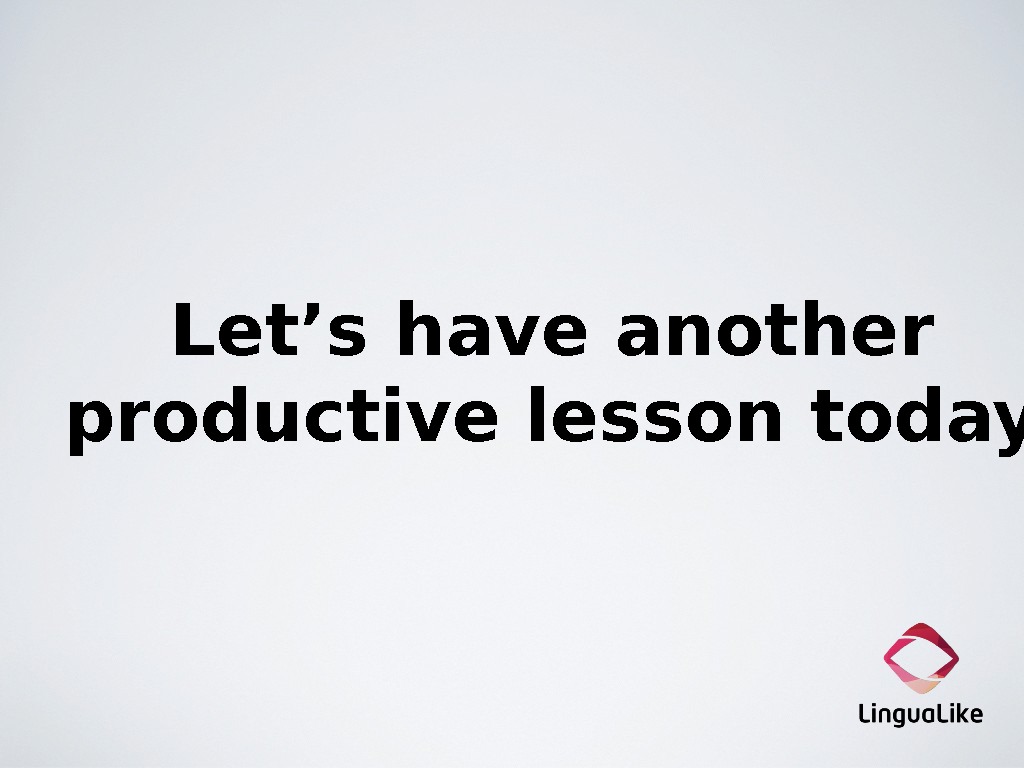
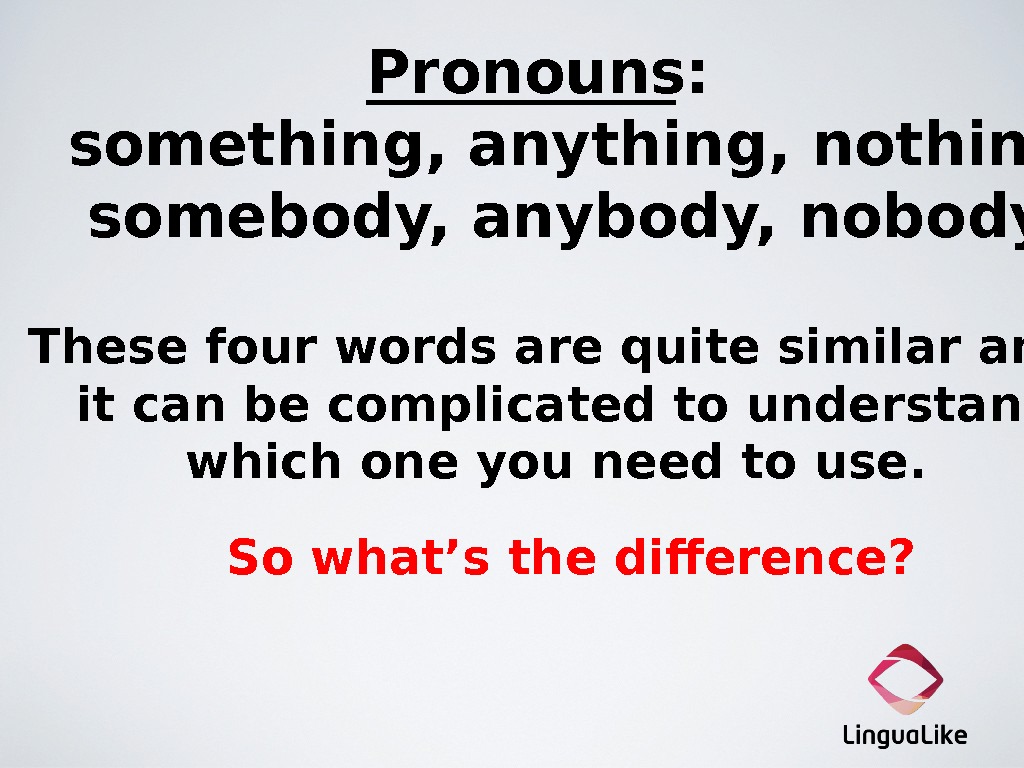
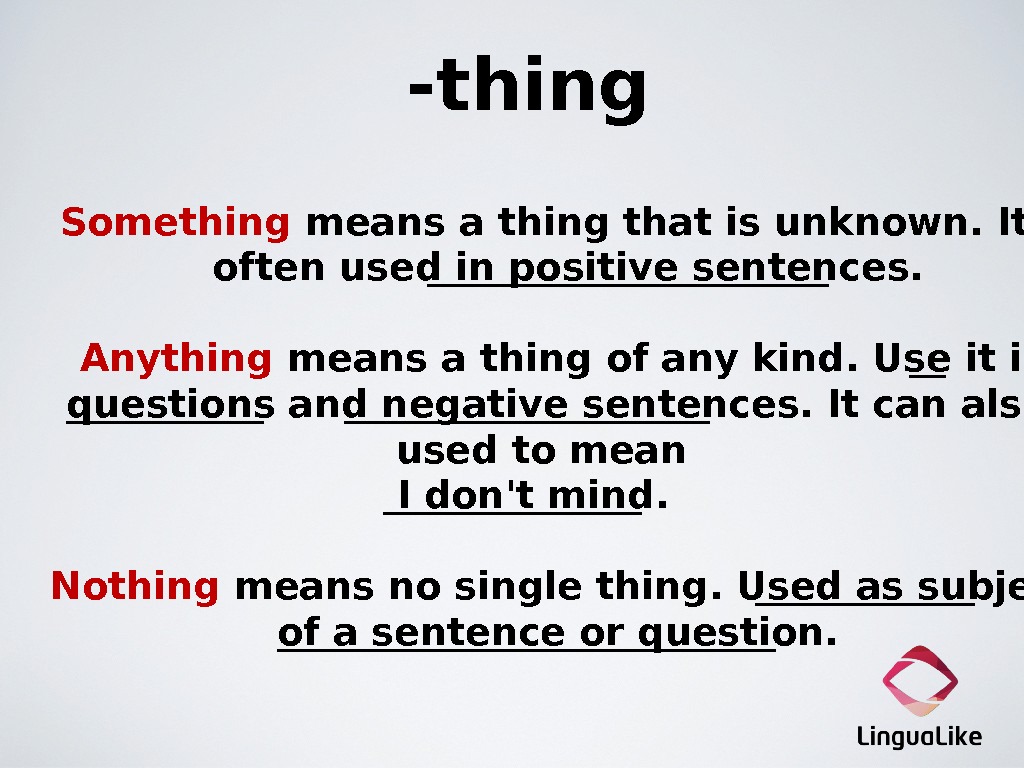

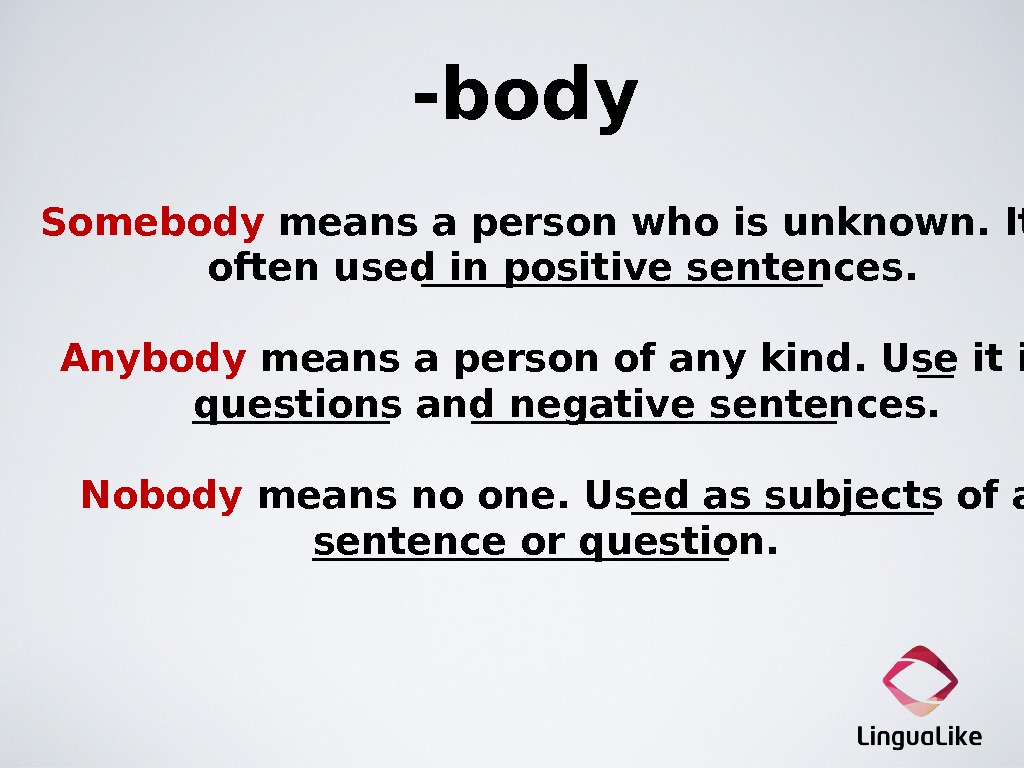
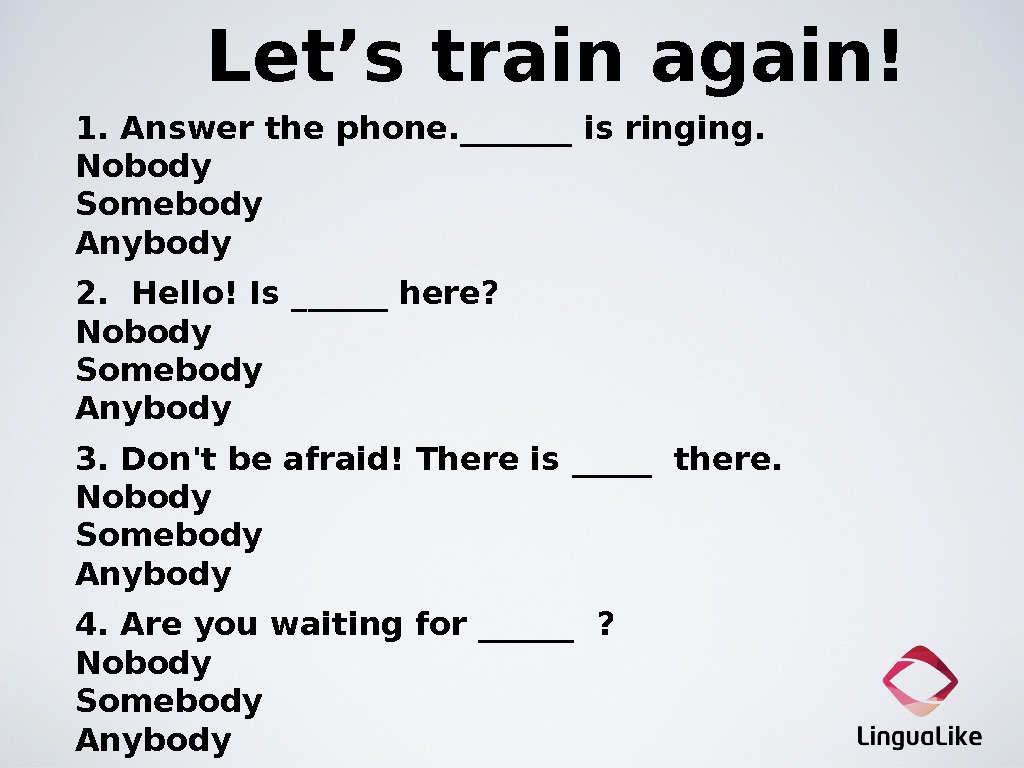
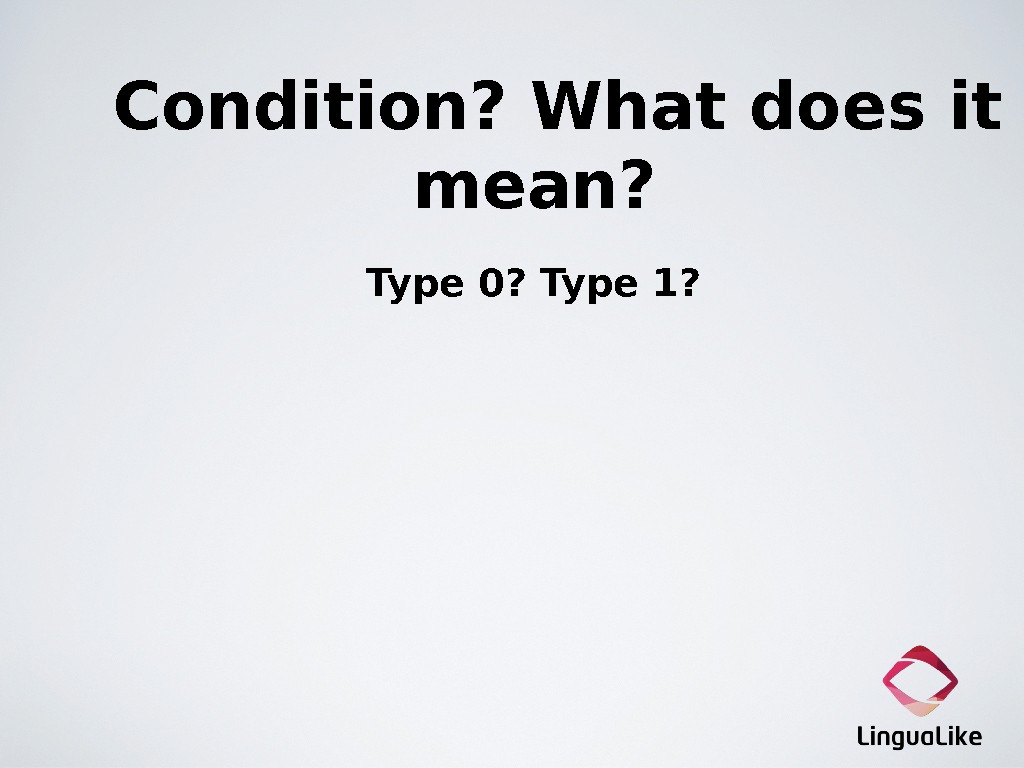
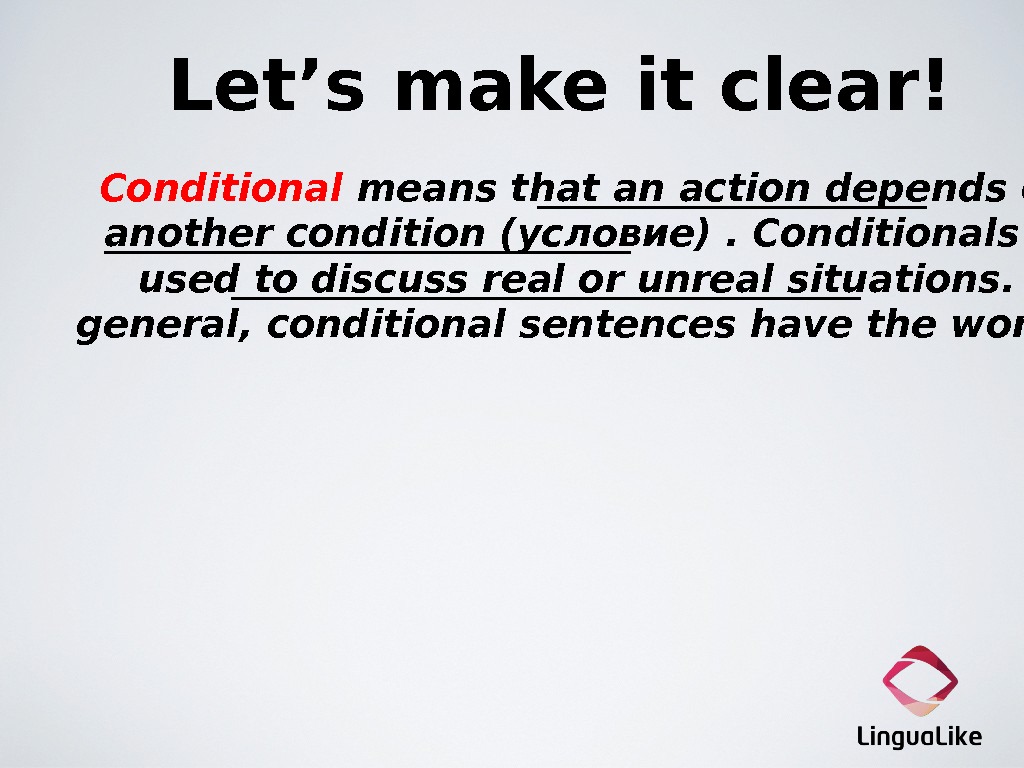
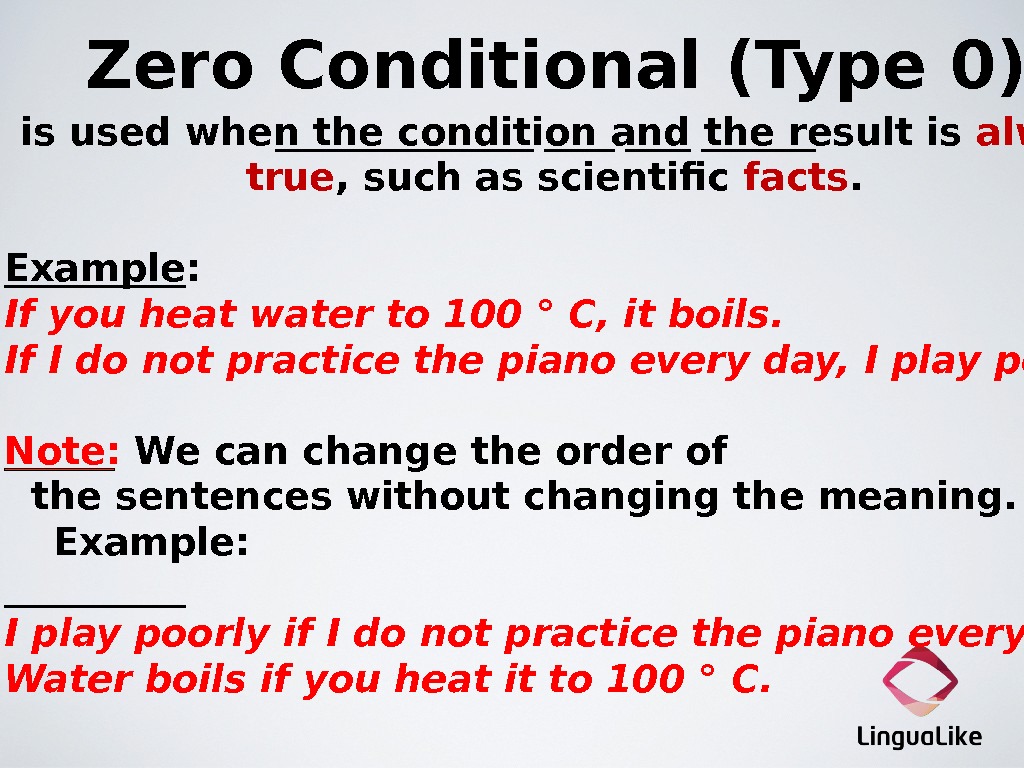
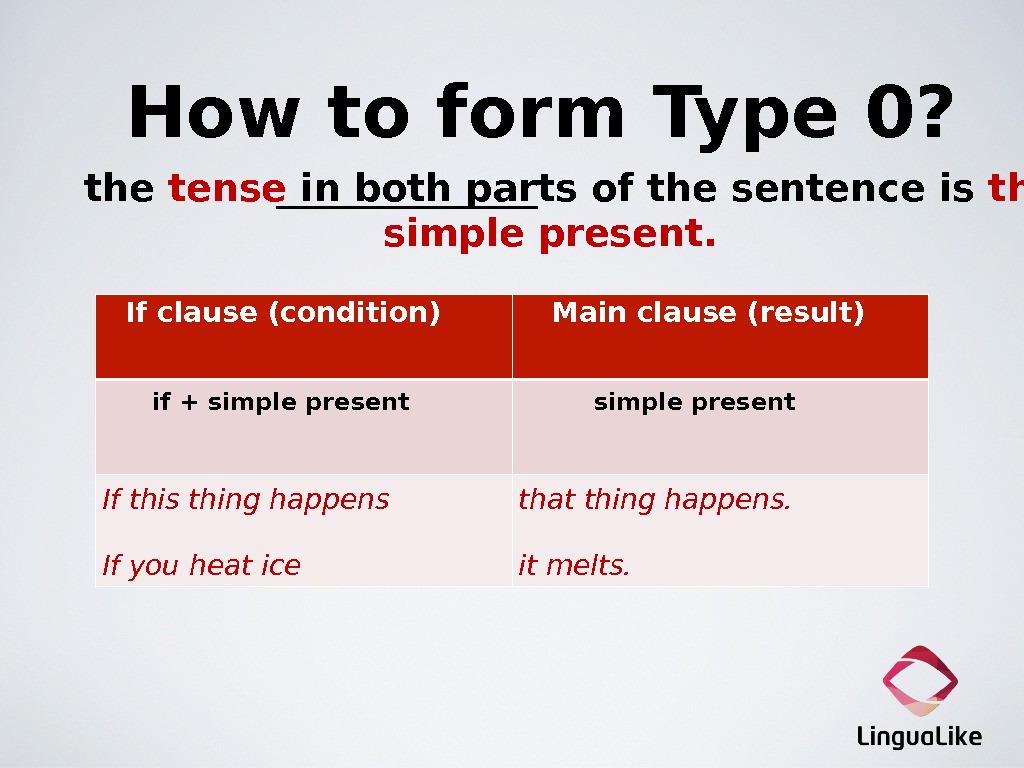
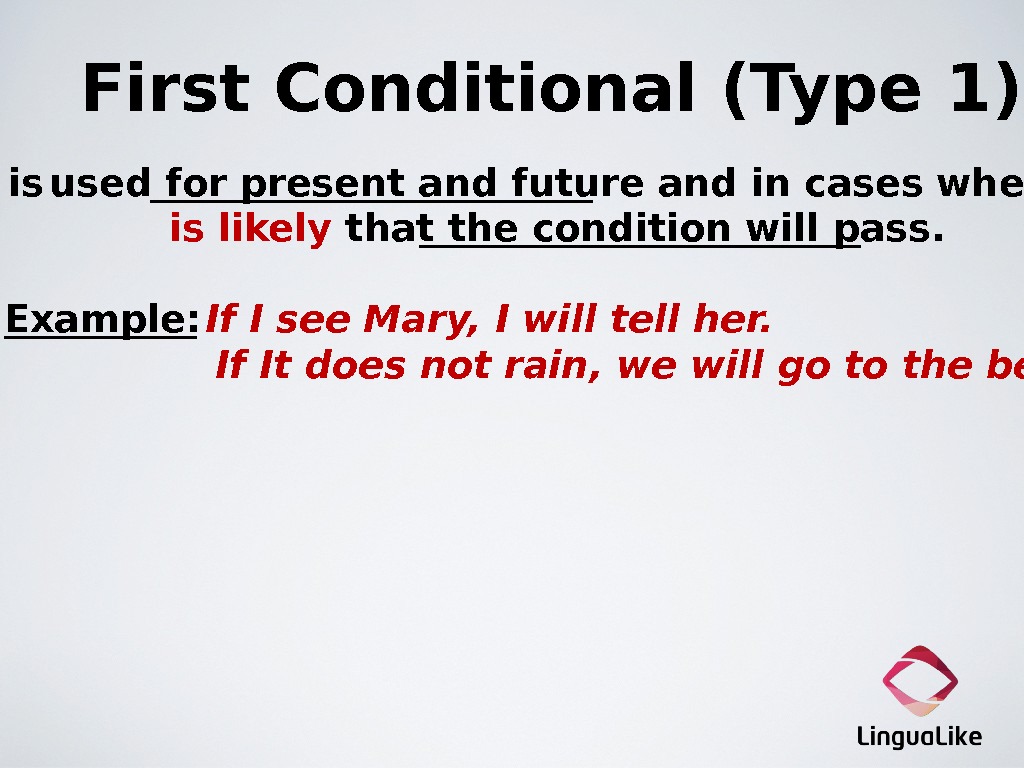
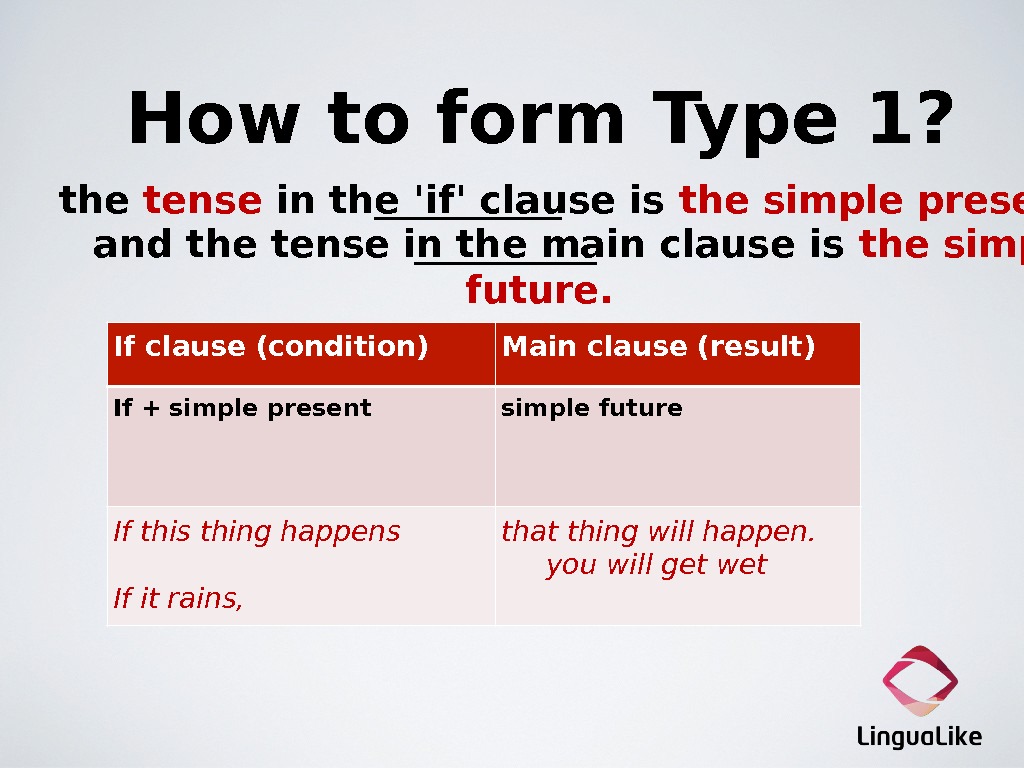
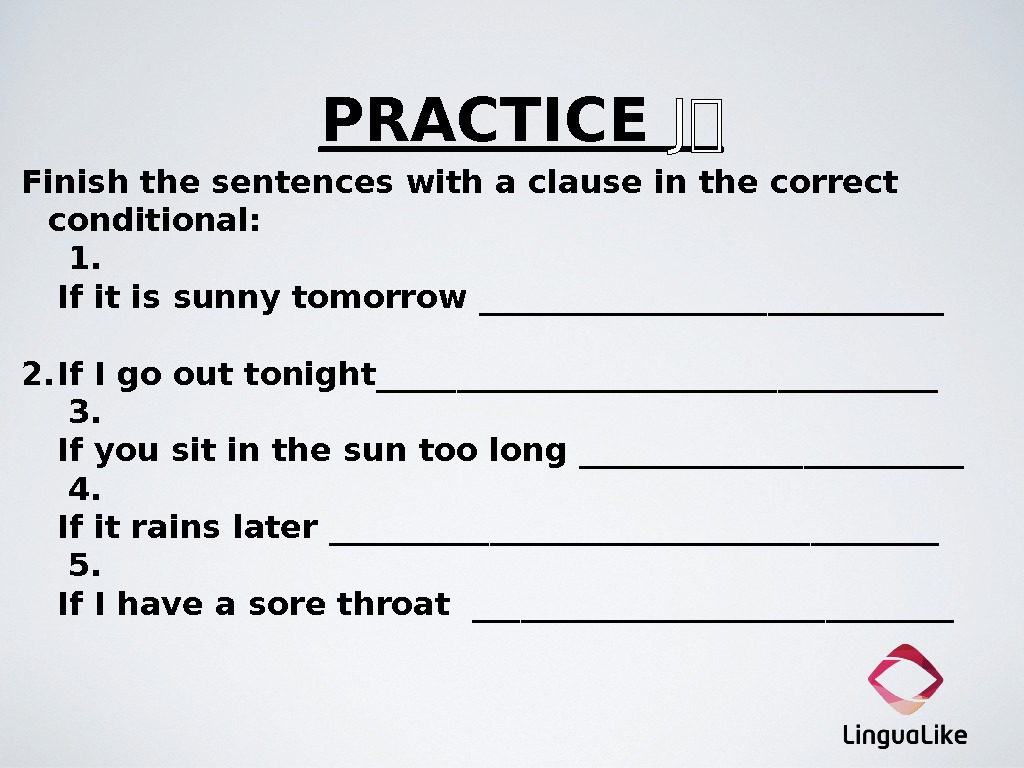


- Размер: 10 Mегабайта
- Количество слайдов: 15
Описание презентации Let’s have another productive lesson today! по слайдам
 Let’s have another productive lesson today!
Let’s have another productive lesson today!
 Pronouns: something, anything, nothing, somebody, anybody, nobody These four words are quite similar and it can be complicated to understand which one you need to use. So what’s the difference?
Pronouns: something, anything, nothing, somebody, anybody, nobody These four words are quite similar and it can be complicated to understand which one you need to use. So what’s the difference?
 -thing Something means a thing that is unknown. It is often used in positive sentences. Anything means a thing of any kind. Use it in questions and negative sentences. It can also be used to mean I don’t mind. Nothing means no single thing. Used as subjects of a sentence or question.
-thing Something means a thing that is unknown. It is often used in positive sentences. Anything means a thing of any kind. Use it in questions and negative sentences. It can also be used to mean I don’t mind. Nothing means no single thing. Used as subjects of a sentence or question.
 Let’s train! 1. I don’t have ___ to eat. nothing something anything 2. There’s ___ in this room making a noise. What is it? anything something nothing 3. If you need ___ , just call me. anything something nothing 4. In my opinion, ___ is more important than family. anything nothing something
Let’s train! 1. I don’t have ___ to eat. nothing something anything 2. There’s ___ in this room making a noise. What is it? anything something nothing 3. If you need ___ , just call me. anything something nothing 4. In my opinion, ___ is more important than family. anything nothing something
 -body Somebody means a person who is unknown. It is often used in positive sentences. Anybody means a person of any kind. Use it in questions and negative sentences. Nobody means no one. Used as subjects of a sentence or question.
-body Somebody means a person who is unknown. It is often used in positive sentences. Anybody means a person of any kind. Use it in questions and negative sentences. Nobody means no one. Used as subjects of a sentence or question.
 Let’s train again! 1. Answer the phone. _______ is ringing. Nobody Somebody Anybody 2. Hello! Is ______ here? Nobody Somebody Anybody 3. Don’t be afraid! There is _____ there. Nobody Somebody Anybody 4. Are you waiting for ______ ? Nobody Somebody Anybody
Let’s train again! 1. Answer the phone. _______ is ringing. Nobody Somebody Anybody 2. Hello! Is ______ here? Nobody Somebody Anybody 3. Don’t be afraid! There is _____ there. Nobody Somebody Anybody 4. Are you waiting for ______ ? Nobody Somebody Anybody
 Condition? What does it mean? Type 0? Type 1?
Condition? What does it mean? Type 0? Type 1?
 Let’s make it clear! Conditional means that an action depends on another condition (условие). Conditionals are used to discuss real or unreal situations. In general, conditional sentences have the word «if»
Let’s make it clear! Conditional means that an action depends on another condition (условие). Conditionals are used to discuss real or unreal situations. In general, conditional sentences have the word «if»
 Zero Conditional (Type 0) is used when the condition and the result is always true , such as scientific facts. Example: If you heat water to 100 ° C, it boils. If I do not practice the piano every day, I play poorly. Note: We can change the order of the sentences without changing the meaning. Example: I play poorly if I do not practice the piano every day. Water boils if you heat it to 100 ° C.
Zero Conditional (Type 0) is used when the condition and the result is always true , such as scientific facts. Example: If you heat water to 100 ° C, it boils. If I do not practice the piano every day, I play poorly. Note: We can change the order of the sentences without changing the meaning. Example: I play poorly if I do not practice the piano every day. Water boils if you heat it to 100 ° C.
 How to form Type 0? the tense in both parts of the sentence is the simple present. If clause (condition) Main clause (result) if + simple present If this thing happens If you heat ice that thing happens. it melts.
How to form Type 0? the tense in both parts of the sentence is the simple present. If clause (condition) Main clause (result) if + simple present If this thing happens If you heat ice that thing happens. it melts.
 First Conditional (Type 1) is used for present and future and in cases where it is likely that the condition will pass. Example: If I see Mary, I will tell her. If It does not rain, we will go to the beach.
First Conditional (Type 1) is used for present and future and in cases where it is likely that the condition will pass. Example: If I see Mary, I will tell her. If It does not rain, we will go to the beach.
 How to form Type 1? the tense in the ‘if’ clause is the simple present , and the tense in the main clause is the simple future. If clause (condition) Main clause (result) If + simple present simple future If this thing happens If it rains, that thing will happen. you will get wet
How to form Type 1? the tense in the ‘if’ clause is the simple present , and the tense in the main clause is the simple future. If clause (condition) Main clause (result) If + simple present simple future If this thing happens If it rains, that thing will happen. you will get wet
 PRACTICE J Finish the sentences with a clause in the correct conditional: 1. If it is sunny tomorrow _______________ 2. If I go out tonight__________________ 3. If you sit in the sun too long ____________ 4. If it rains later ___________________ 5. If I have a sore throat _______________
PRACTICE J Finish the sentences with a clause in the correct conditional: 1. If it is sunny tomorrow _______________ 2. If I go out tonight__________________ 3. If you sit in the sun too long ____________ 4. If it rains later ___________________ 5. If I have a sore throat _______________
 Now let’s play a game! ‘ Alibi’
Now let’s play a game! ‘ Alibi’
 And today we sing again!
And today we sing again!

